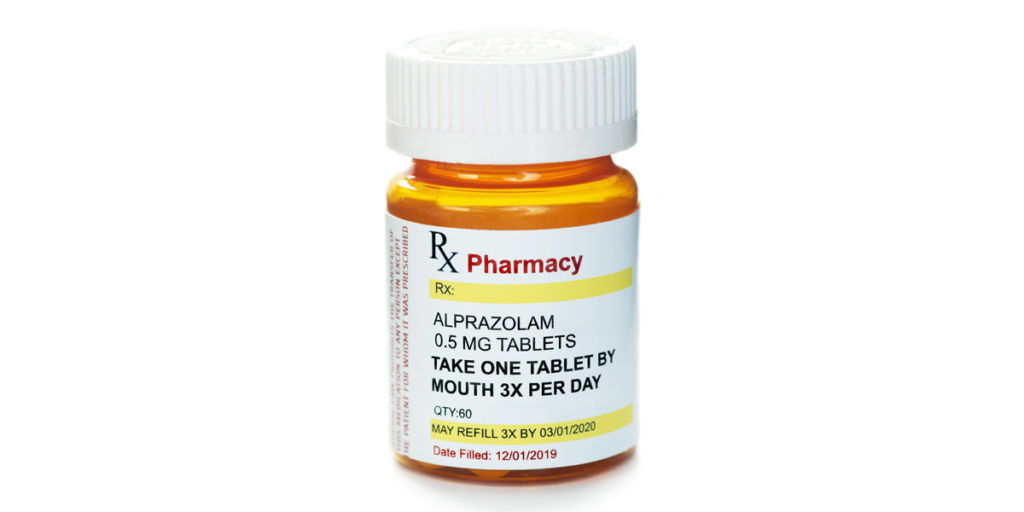Can Xanax Kill You?

Its easy access and feelings of happiness make Xanax the most abused drug of its kind. Of the benzodiazepine family of drugs, Xanax is the most frequently mixed with alcohol with the intent of abuse. Besides benzodiazepines being associated with nearly one-third of deliberate overdoses or suicide attempts. The leading cause of death with Xanax use is stopped breathing from mixing it with other depressants such as alcohol.
All benzodiazepines cause apnea, which means stopped or slowed breathing, but Xanax has the highest risk. Individuals mixing it with alcohol and opioids face the most significant threat. Because the combination allows you to get the addictive effects of all the drugs, it creates a particularly harmful pattern. While you may have been fine using Xanax by itself, putting it together with other substances leaves you at a very high risk of death.
What Is Xanax?
Xanax is a prescription drug used to treat anxiety disorder and panic attacks. It belongs to a group of psychoactive medications called benzodiazepines. Xanax, an approved Food and Drug Administration (FDA) sedative, is the brand name for the generic drug alprazolam.
Alprazolam is the most commonly prescribed psychoactive drug in the United States. It causes euphoric and calming feelings fueling its highly addicting properties. For this reason, it is used for recreational use and has a likelihood of abuse.
Types and Doses of Xanax
Xanax and other generic versions of alprazolam come in four different forms and various dosages. These include:
- Regular release tablets – Doses of 0.25 mg, 0.5 mg, 1 mg, and 2 mg.
- Extended-release tablets – Doses of 0.5 mg, 1 mg, 2 mg, and 3 mg.
- Oral solution – Strengths of 0.5 mg/5 mL and 1 mg/10 mL.

Side Effects of Xanax
Xanax is a high potency anxiolytic, a category of drugs specifically targeted to prevent and treat anxiety. Its effects can be felt within 30 minutes and lasts around 6 hours.
Although Xanax produces feelings of ease and happiness, the side effects are a direct consequence of its chemical makeup for its intended use. As a result, side effects typically include drowsiness, fatigue, and memory impairment.
Other adverse side effects include:
- Insomnia
- Slurred speech
- Poor balance or coordination
- Headache
- Irritability
- Blurred vision
- Diarrhea
- Constipation
- Memory problems
- Nausea
- Appetite or weight changes
- Swelling of hands or feet
- Muscle weakness
- Loss of interest in sex
Habitual alprazolam use has been reported to cause amnesia, aggressive behavior, and mania. In addition, there are reports of continued alprazolam use linked to certain aspects of mental deterioration.
Xanax Withdrawal
Withdrawing from Xanax produces additional symptoms other benzodiazepine withdrawal syndromes don’t. For instance, there have been reports of delirium and psychosis caused by alprazolam withdrawal, while there aren’t any such recorded symptoms in other benzodiazepine withdrawal cases.
Withdrawal Symptoms
Even though Xanax withdrawal has especially severe symptoms, for example, some patients require emergency room admission. Benzodiazepine withdrawal syndrome has its own set of harsh symptoms. It typically consists of the following:
- Insomnia
- Increased tension and anxiety
- Panic attacks
- Hand tremors
- Sweating
- Difficulty concentrating
- Nausea
- Weight loss
- Headache
- Muscle pain and stiffness
- Heart palpitations
- Various mental changes in perception and thoughts
More serious symptoms have been reported with high-dose chronic users, such as seizures and psychotic reactions which can be life threatening.

Xanax and Withdrawal Management
Dose reduction, or a taper, is recommended to avoid the risk of withdrawal. Specifically for Xanax, the manufacturer suggests that the daily dose shouldn’t be reduced by more than 0.5 mg every three days.
Some users need to taper down even slower than the suggested reduction. With long-term chronic users, it is recommended to switch to a longer-acting benzodiazepine like clonazepam or diazepam and decrease the amount gradually.
These strategies are effective in handling a smoother detox and result in fewer withdrawal side effects. However, in some rare cases, these approaches have proven ineffective in preventing Xanax withdrawal symptoms.
Xanax and Suicide
Reports of depression and suicide attempts are associated with individuals taking alprazolam. However, the relationship is undefined because of the frequency to mix it with other substances.
Overdosing on Xanax
Xanax overdoses cause a drop in blood pressure, pulse, and breathing. Although few overdoses caused only by alprazolam, have been reported. Instead, overdose deaths, including accidental ones, while using alprazolam and other controlled substances, particularly alcohol and opioids, are becoming more common.

Can Xanax Overdose Kill You?
Because overdosing exclusively on Xanax is unlikely, the chances of overdosing and dying on a combination of alprazolam and other commonly mixed substances are very high.
Three drug classes— benzodiazepines, alcohol, and opioids, are all depressants. They are respiratory depressants; in other words, they reduce your rate of breath. For example, when you combine alcohol and benzodiazepines in sufficient amounts, you could stop breathing. Like a heroin overdose, your brain forgets to tell your body to breathe. Addedly, the use of alprazolam along with opioids doubles the chances of respiratory depression and death.
Xanax Addiction Treatment
Xanax addiction is a slippery slope, mainly because it’s become popular amongst existing drug users. Unfortunately, this leaves individuals with substance use disorders in a dangerous position. But avoiding overdose and managing withdrawal symptoms is possible with the right treatment program.
Find Help for You or Your Loved One
If you or someone you know is struggling with Xanax abuse, please reach out to Northridge Addiction Treatment Center. You don’t have to handle the situation on your own. Substance use disorders are common and treatable, and there is no shame in seeking out help. We’re here for you.
Find Meaningful Recovery
Our caring and compassionate specialists are eager to help you comfortably navigate this journey to recovery. Our individualized treatment plan, programs, and therapies may be a perfect match for you or your loved one. Let us assist you in living the happy life you deserve. It starts with a phone call.




